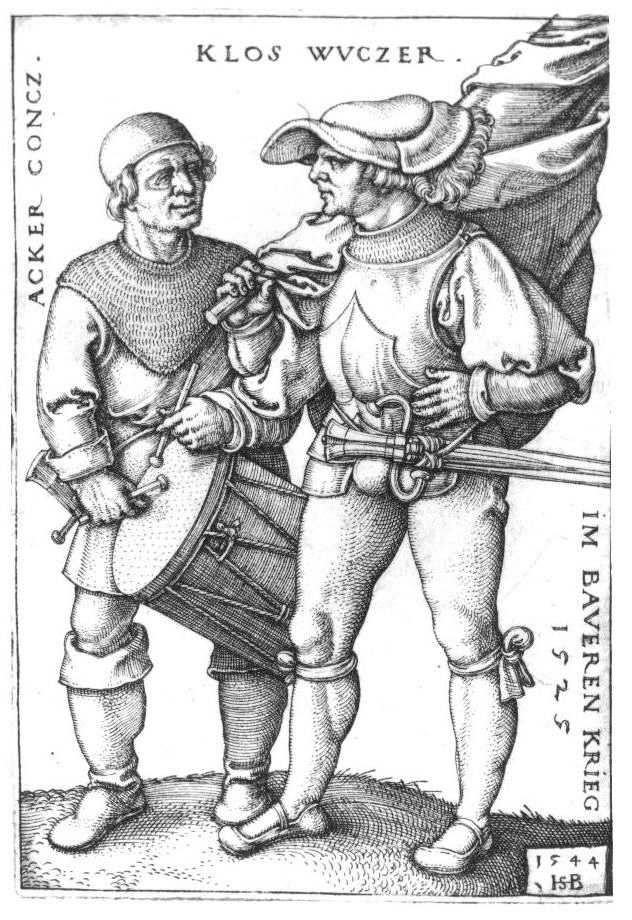
Peasants and Kings
in Early Modern Europe

 |
History 407/507
Peasants and Kings in Early Modern Europe |
Image right: Pieter Bruegel the Younger, The Village Lawyer (1621), Oil on panel, 74,8 x 122 cm. Museum voor Schone Kunsten, Ghent; Source: Web Gallery of Art, http://www.kfki.hu/~arthp/html/b/bruegel/pieter_y/index.html.
Requirements
This is a five-credit advanced seminar, which means that workload will be heavier than usual and that our meetings will be devoted primarily to the discussion of assigned readings. It is therefore imperative that you complete the readings for a given week in advance of class and come prepared to discuss the readings. Participation in discussion, accordingly, will count heavily in grading. The reading load will be heavy, the equivalent of a book to read each week. If you think that this is too much for you to handle, it is best to draw the consequences sooner rather than later. As a senior seminar, the course is also designed to enable students to fulfill the department of history’s senior thesis requirement for graduation. Accordingly the emphasis in readings, discussions, and assignments will be on methodology, the use of sources, and historical writing.
There will be three small “document analysis” assignments in addition to the seminar paper, due in class in weeks 2, 3, and 4. In each of these, you will be asked to analyze a document, which you can choose from a number of assigned source collections. The idea behind these exercises is two-fold. First, they are meant to acquaint you with topics of this course more closely than any secondary historical analysis can. Secondly, they are intended to start you thinking and working like historians: primary documents, after all, are the lab rats of historical research (if you’ll pardon the analogy). There’s no doing history without them.
The research paper will be twenty pages in length. Ideally, it will be based on primary sources in their original languages and on a thorough familiarity with the secondary literature that relates to the topic you have chosen. If you are unable to read sources in the original, translations will do. In some cases, there will be no primary sources available and in that case you will have to rely on secondary literature. Here too, the foreign language expectation applies: if you have the skill, use it.
The final grade will break down as follows:
Document analyses: 20% (5% each)
Participation: 30%
Final Paper: 50%
In addition to these assignments, there will be a paper prospectus due
in week 5. The prospectus is an informed statement of your intent; it should
indicate the topic of your research, the sources you plan to use, the methodology
you expect to apply, and the secondary historical works you intend to use.
Obviously, you will need to spend a fair amount of time in the library
to produce a well-informed prospectus, so do yourself a favor and avoid
the last-minute rush-job. Note well: the Internet is an unacceptable source
of secondary literature for the purposes of your thesis. There are many
primary sources to be found on the Internet, and you may use them, but
only after consulting with me first. Papers that are found to have been
downloaded, all or in part, will automatically receive a failing grade.
Readings
There is no textbook assigned for this course. Instead, we will be reading through major historical works on the topic, approximately one each week, plus scholarly articles and primary documents. Unfortunately, not all of the books assigned for this course are in print. Fresh copies of Rodney Hilton's Bond Men Made Free and Peter Sahlins' Forest Rites will be available for purchase in the bookstore. Every effort will be made to obtain new and used copies of the remaining books. And as always, all of the books and other texts assigned for this course are available on reserve at Knight Library.
Rodney Hilton, Bond Men Made Free: Medieval Peasant Movements and
the English Rising of 1381
Steven Justice, Writing and Rebellion: England in 1381 ()
Peter Blickle, The Revolution of 1525: The German Peasants’ War
from a New Perspective
Keith Moxey, Peasants, Warriors and Wives: Popular Imagery in the
Reformation ()
Yves-Marie Bercé, The History of Peasant Revolts
Peter Sahlins, Forest Rites: The War of the Demoiselles in Nineteenth-Century
France
Note that two of these books -- Steven Justice, Writing and Rebellion and Keith Moxey, Peasants, Warriors and Wives -- are assigned for History 507 only.